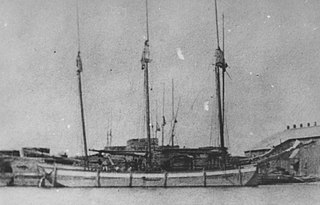| Look up scow in Wiktionary, the free dictionary. |
Scow can refer to:
| Look up scow in Wiktionary, the free dictionary. |
Scow can refer to:
| Search for "scow" on Wikipedia. |
Buffalo most commonly refers to:

Niagara Falls is a group of three waterfalls at the southern end of Niagara Gorge, spanning the border between the province of Ontario in Canada and the state of New York in the United States. The largest of the three is Horseshoe Falls, also known as Canadian Falls, which straddles the international border of the two countries. The smaller American Falls and Bridal Veil Falls lie within the United States. Bridal Veil Falls is separated from Horseshoe Falls by Goat Island and from American Falls by Luna Island, with both islands situated in New York.
Terrestrial refers to things related to land or the planet Earth.

A scow is a type of flat-bottomed barge. Some scows are rigged as sailing scows. In the 19th and early 20th centuries, scows carried cargo in coastal waters and inland waterways, having an advantage for navigating shallow water or small harbours. Scows were in common use in the American Great Lakes and other parts of the U.S., in southern England, and in New Zealand. In Canada, scows have traditionally been used to transport cattle to the islands of New Brunswick's Saint John River. In modern times their main purpose is for recreation and racing.

The Welland Canal is a ship canal in Ontario, Canada, connecting Lake Ontario and Lake Erie. It forms a key section of the St. Lawrence Seaway and Great Lakes Waterway. Traversing the Niagara Peninsula from Port Weller in St. Catharines to Port Colborne, it enables ships to ascend and descend the Niagara Escarpment and bypass Niagara Falls. It is the fourth canal connecting these waterways; three smaller predecessors also bore the same name.
Alma or ALMA may refer to:
Niagara Falls is the set of large waterfalls on the Niagara River.
Niagara may refer to:
Table Rock may refer to:
M16 or M-16 may refer to:

Nine Mile Point Nuclear Station is a nuclear power plant with two nuclear reactors located in the town of Scriba, approximately five miles northeast of Oswego, New York, on the shore of Lake Ontario. The 900-acre (360 ha) site is also occupied by the James A. FitzPatrick Nuclear Power Plant.
Squaw Island may refer to:
The Niagara Parks Commission, commonly shortened to Niagara Parks, is an agency of the Government of Ontario which maintains the Ontario shoreline of the Niagara River.

The Niagara Scow is the unofficial name of the wreck of a small scow that brought two men perilously close to plunging over the Horseshoe Falls, the largest of the Niagara Falls, in 1918. The wreck can still be seen, upstream of the falls.
I20, I 20 or I-20 may refer to:
Robert Moses (1888–1981) was an American city planner.

William "Red" Hill Sr. was a Canadian daredevil and rescuer, born in Niagara Falls, Ontario, in 1888. In 1896 he received his first medal for bravery when he rescued his sister from their burning house which was followed by a life-saving medal in 1912, achieving the status as a local hero. A bootlegger on occasion during the Prohibition, Hill went on to receive a total of four medals in addition to being credited with saving 28 lives and the recovery of 177 accident and suicide victims from the Niagara River just below the Falls.

Nikolas Wallenda is an American acrobat, aerialist, daredevil, high wire artist, and author. He is known for his high-wire performances without a safety net. He holds 11 Guinness World Records for various acrobatic feats, but was best-known as the first person to walk a tightrope stretched directly over Niagara Falls. Wallenda walked 1,800 feet on a steel cable over Masaya Volcano in Nicaragua, his longest walk, on March 4, 2020.

Eva was a sternwheel steamboat that was operated on the Umpqua River on the Oregon coast in the early part of the 1900s. Eva was notable for long service on a short route of about 20 miles. Eva was also notable for having been used by one of its owners to illegally transport dynamite on a passenger-carrying vessel, by the ruse of labeling the dynamite boxes as "bacon."

The Mayflower was a wooden hulled scow schooner that sank on June 2, 1891, in Lake Superior near Duluth, Minnesota, United States, after capsizing with a load of sandstone blocks. In 2012 the shipwreck site was added to the National Register of Historic Places.